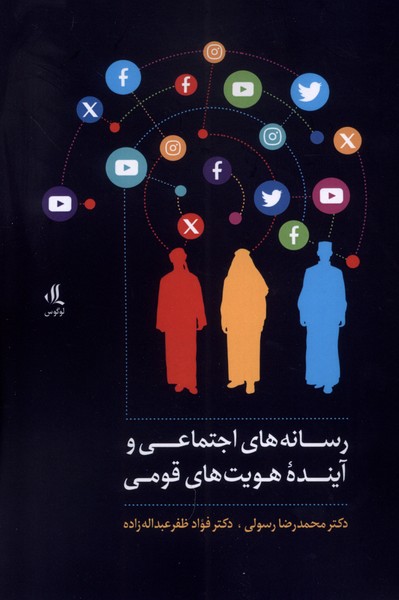چشم اندازهای اجتماعی ذهن الفارسية 1401
Chism'andāz'hā-yi ijtimāī ẕihn
21٫29 $
مشاركة
Wishlist
العنوان الأصلي:
Social Mindscapes: An Invitation to Cognitive Sociology
ISBN رقم:
9786226288439
المترجم:
A group of translators
الناشر:
Lugus
الفئة العمرية:
البالغون
الصفحات:
184
الوزن:
224 g
أبعاد المنتج:
14 x 21 x 1٫5 cm
غلاف الكتاب:
غلاف ورقی
How is social cognition formed? How are our cognitive faculties—attention, categorization, memory, and meaning-making—which are apparently individual properties, constructed in the culture in which we live? The premise of this book is that knowledge is basically a social matter and our knowledge of the world around us is influenced by the intellectual society to which we belong. Therefore, in the world of phenomena and behaviors, the reality of existence is not objective or subjective but is a product of inter-subjectivities. Reading this book is suggested to researchers and thinkers who are not very satisfied with the current trend in social sciences and believe that the variables, units of analysis, methodology, and, in a word, the focus of attention of researchers on the research topic should be changed. In addition, many examples of the social field of seemingly individual experiences in the book are useful for other thinkers of human sciences, especially (cognitive) psychologists, showing them how to achieve a more accurate analysis of the data, they should also pay attention to their social aspects.
more
شناخت اجتماعی چگونه شکل میگیرد؟ چگونه قوای شناختی ما – توجه، مقولهبندی، حافظه و معناسازی – که بهظاهر هستارهایی فردیاند، در فرهنگی که در آن زندگی میکنیم برساخته میشوند؟ پیشفرض این کتاب آن است که شناخت اساسا امری اجتماعی است و شناخت ما از جهان اطراف تحت تاثیر جامعۀ فکریای است که به آن تعلق داریم. بنابراین، در جهان پدیدارها و رفتارها واقعیت هستاری عینی یا ذهنی نیست، بلکه محصول میان ذهنیت هاست. خواندن این کتاب به پژوهشگران و اندیشهورزانی پیشنهاد میشود که رضایت چندانی از جریان غالب در علوم اجتماعی ندارند و معتقدند متغیرها، واحدهای تحلیل، روششناسی و، در یککلام، کانون توجه پژوهشگران به موضوع تحقیق باید تغییر کند. بهعلاوه، نمونههای فراوانی که از ساحت اجتماعی تجربههای بهظاهر فردی در کتاب ارائه میشود برای سایر اندیشمندان علومانسانی، بهویژه روانشناسان (شناختی)، نیز سودمند بوده، به آنها نشان میدهد چگونه برای رسیدن به تحلیلی دقیقتر از دادهها باید به جنبههای اجتماعی آنها نیز توجه کنند.
more





















